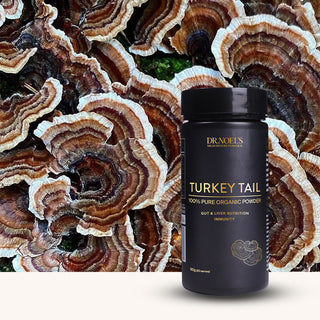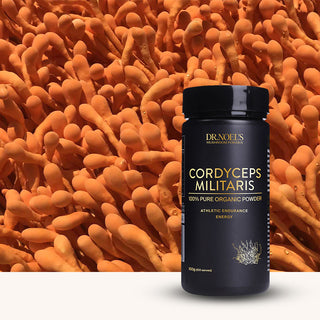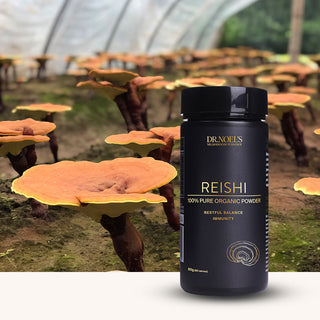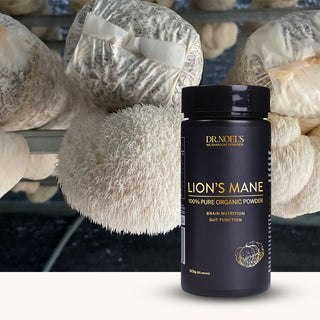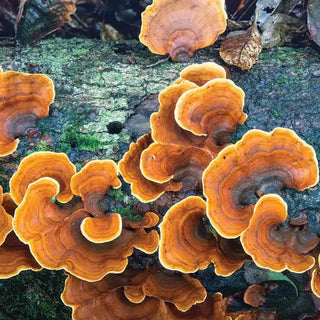
The liver is crucial for maintaining general health. It is in charge of more than 500 vital functions, such as protein synthesis, nutrition absorption, and detoxification. A high-stress lifestyle, junk food, and excessive alcohol consumption can all damage the liver.
Over two million people die from liver disease each year, and according to the most recent meta-analysis, at least 30% of adults worldwide have non-alcoholic fatty liver disease (NAFLD).
Supplements for the liver are made to protect against various diseases, such as fatty liver disease and hepatitis, as well as to promote liver health and improve detoxification processes. Turkey tail mushrooms contain natural and scientifically established compounds that protect the liver, promote liver regeneration, support liver health, and facilitate detoxification.
Read on to learn how the liver-supportive ingredients in Turkey tail mushrooms are scientifically proven to promote good liver health.
Exploring The Science Behind The Turkey Tail Benefits For Liver
Turkey tail mushrooms have long been used in traditional Chinese medicine to treat liver ailments, including jaundice. The mushroom extracts have been shown in recent studies to offer protection against liver damage, including that which results from consuming excessive amounts of alcohol.
Turkey tail mushrooms have anti-inflammatory and antioxidant properties that have been shown to improve health and, in certain circumstances, even treat non-alcoholic fatty liver disease.
Here’s how the mushroom confers hepato-protective effects.
Turkey Tail may have liver-protective effects
Alcoholic liver disease (ALD) is a leading cause of morbidity and mortality worldwide. Polysaccharides of Turkey tail mushrooms may confer protective effects on the liver. Researchers evaluated the effect of polysaccharide peptide (PSP) extracted from Coriolus versicolor on alcohol-induced liver damage in mice in an article published in 2018.
PSP supplementation reduced ethanol-induced increases in liver enzymes such as aspartate transaminase (AST), aspartate transaminase (ALT), and microscale malondialdehyde (MDA). PSP pretreatment also reduced ethanol-induced blood levels of total cholesterol (TC) and triacylglycerol (TG).
Turkey Tail may reduce alcoholic liver injury
In another study from 2019, the anti-alcoholic liver injury activity of a polysaccharide from Coriolus versicolor mycelia was studied. Researchers identified one polysaccharide peptide (PSP) in Turkey tail, PSP-1b1, that had hepatoprotective effects in mice.
PSP has been used as an adjunctive immunotherapy for treating liver diseases PSP and may help protect the liver against the toxic compound CCl3- by modulating the immunological response to the free radical, such as boosting levels of the protective antioxidants glutathione, peroxidase (GSH-Px), SOD, and glutathione (GSH).
Benefits Of Turkey Tail Mushroom
Turkey tail mushroom has multiple health benefits due to its potential antioxidant and immune-boosting qualities. The following are some potential benefits of taking Turkey tail mushrooms:
Regulating the immune system
Turkey tail mushroom contains compounds called polysaccharide-K (PSK) and polysaccharide peptides (PSP), which are known to strengthen the immune system and aid in the body’s defense against infections, cancer, and other diseases.
Studies have demonstrated that PSPs increase the formation of immunological cells, which helps the body fight against infections. In the same way, PSK boosts immunity by stimulating natural killer cells, lowering inflammation, and stimulating the body’s immune reaction.
Supporting cancer treatment
Turkey tail extracts have been combined with conventional cancer treatments in Japan. The addition of Turkey tail with radiation or chemotherapy has demonstrated the potential to enhance overall results and treatment efficacy.
According to studies, cancer patients who received Turkey tail in addition to their standard treatments lived longer than those who only had chemotherapy. This was particularly true for patients with colorectal, stomach, and breast cancer. Moreover, research indicates that extracts from Turkey tail can suppress the growth of cancer cells and improve immune system performance in people with specific types of cancer.
Nurturing digestive health
Turkey tail mushrooms have demonstrated the ability to improve gut health by fostering the growth of good bacteria, which are necessary for a healthy digestive system. It functions as a prebiotic, encouraging the growth of “good” bacteria in the digestive system. Strong immunological function, better digestive health, and a decreased incidence of stomach issues are all associated with a healthy gut.
Possible improvement in athletic performance
According to preliminary studies, Turkey tail may help athletes perform better by boosting energy and preventing exhaustion, improving strength and endurance.
Additional Benefits
In addition to the benefits already stated, Turkey tail mushrooms may be valuable in the following areas:
Bone health: Based on preliminary data, Turkey tail extract may strengthen bones and prevent bone loss associated with some cancer treatments.
Cognitive function: Turkey tail, which is high in antioxidants, may help with memory and problem-solving abilities, lowering the chance of cognitive loss associated with aging.
Healthy aging: Turkey tail’s immune-stimulating and antioxidant qualities may contribute to a healthy aging process by warding off age-related illnesses and inflammation.
Balanced blood sugar levels: Research on animals suggests that extracts from Turkey tail may help lower blood sugar and improve insulin resistance, both of which are beneficial for people with type 2 diabetes.
It’s crucial to remember that these potential advantages depend on the bioactive chemicals found in mushrooms, increase the effectiveness of these compounds. Therefore, it’s critical to select premium mushroom supplements over lower-quality ones.
Recent studies have verified that the fruiting body of the mushroom has a higher concentration of active beneficial compounds, like beta-glucans, than the mycelium. Many companies use mycelium, a portion of the fungus that is less potent since it contains less active beneficial phytochemicals, in their products to save money.
During the extraction process, the mushroom’s beneficial compounds are accessed. Inadequate extraction can significantly impact the levels and quality of the healthy beta-glucans in the mushrooms.
Because it impacts the product’s potency, a company’s selection of processes while producing its mushroom products is essential. Purchase supplements only from companies with the scientific know-how and competence to guarantee their effectiveness.
FAQs About Turkey Tail Benefits For Liver
Is Turkey Tail Good For Your Liver?
Turkey tail has the potential to improve the liver’s detoxifying capabilities. Compounds present in the mushroom have been shown to benefit the liver.
Is It Safe To Take Turkey Tail Mushrooms Every Day?
When taken as part of a balanced diet, Turkey tail mushrooms are usually considered safe for most individuals, while there are a few known adverse effects. Rarely people who have used Turkey tail mushrooms have complained of experiencing allergic reactions, nausea, and upset stomach.
Does Turkey Tail Interact With Medications?
People on medication or with a medical issue should speak with their doctor before adding Turkey tail mushrooms to their regimen. Medication for thyroid problems, antidepressants, antihypertensives, anxiety and diabetes meds, and anti-anxiety supplements may interact with this mushroom.
How Can You Use Turkey Tail Mushrooms For Liver Health?
Supplements containing turkey tail mushrooms come in powder or capsule form. Compared to whole mushroom or whole mushroom powder products, extracts have a higher concentration of beneficial components. Furthermore, extract products have a high bioavailability.
How Much Turkey Tail Mushroom Should I Take For Liver Benefits?
To fully benefit from the possible health benefits of Turkey tail mushrooms, it is crucial to determine the proper dosage. The form of the turkey tail, any underlying medical issues, and general health might all affect the appropriate dosage. Nonetheless, 2 to 3 grams each day is an excellent place to start.
Conclusion
Traditional Japanese and Chinese herbalists have long valued Turkey tail mushrooms as a potent immune system and liver health tonic. According to modern science, mushrooms have polysaccharide compounds that strengthen the liver and reduce alcoholic liver damage. Turkey tail supplementation protected the liver and decreased alcohol-induced increases in liver enzymes.
References
1. Journal of Hepatology. Global burden of liver disease: 2023 update.
2. Clinical Gastroenterology and Hepatology. The Global Burden of Liver Disease.
3. Journal of Functional Foods. Polysaccharide peptides from Coriolus versicolor: A multi-targeted approach for the protection or prevention of alcoholic liver disease.
4. International Journal of Biological Macromolecules. Structural characterization and anti-alcoholic liver injury activity of a polysaccharide from Coriolus versicolor mycelia.5. Discovery Medicine. Preclinical and Clinical Studies of Coriolus versicolor Polysaccharopeptide as an Immunotherapeutic in China.
